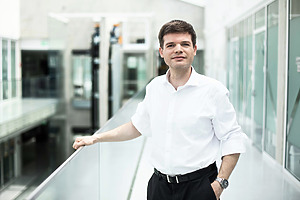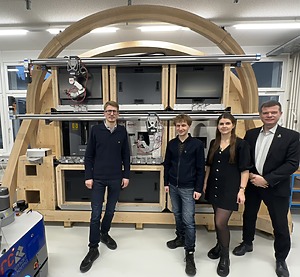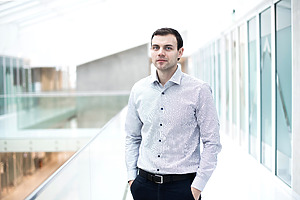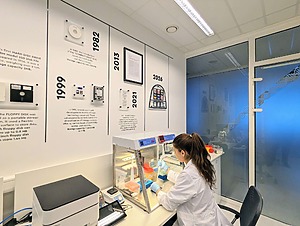A new field of science – DNA data storage – is being developed in Lithuania. Genomika company together with Kaunas University of Technology and other partners, aims to develop an autonomous solution for archiving data in DNA structures. The total value of the project is more than EUR 5 million.
He says there is a global search for reliable, high-density, sustainable and economically viable data storage solutions. For this reason, the enormous potential of storing data in DNA molecules has become apparent.
In 2060, the entire surface of the earth would be covered
The KTU professor says that 65 years ago, a 5 megabyte (MB) hard drive could barely fit in a cargo plane – today it is equivalent to the size of an average digital photograph. However, despite the evolution of data storage technologies, the current ones are not meeting the growing demand.
The DNA Microfactory for Autonomous Archiving (DNAMIC) project, led by a Lithuanian company Genomika and together with an international team of researchers will develop a hard drive based on the storage of data in DNA molecules within 3 years.
The project is funded by the EIC Pathfinder programme, part of the European Horizon. This is the first project funded by this programme in Lithuania. The programme is aimed at companies developing disruptive technologies – products or services that alter the way that consumers, businesses or industries operate.
DNA is highly stable and reliable
Genomika, KTU and researchers from four other countries are working together to develop the first modular drive that will allow a user with no specific knowledge of genetic technologies to record and read digital information using DNA.
Storing information in synthetic DNA structures allows for more efficient use of space, a small footprint and the ability to store information for thousands of years with very low energy consumption, says Prof. Raišutis of KTU.
“One attractive feature of DNA caches is their ability to store large amounts of information in a very small space. It is significantly more compact than traditional digital media. DNA is extremely stable and reliable for long-term storage of information,” emphasises Raišutis.
He believes that storing data in DNA caches is particularly relevant in the healthcare sector, as digitised patient data is stored for their entire lifetime. The storage and processing of digitised information is also crucial for the development of new diagnostics and treatments.
The KTU professor notes that this project is of great significance for the future of biotechnology not only in Lithuania but also worldwide. He says that by working together, science and business can create innovations on a global scale.
“This is an exceptional project coordinated in Lithuania, which contributes to solving a global problem. It is not only technologically but also scientifically relevant, as a new field of science – DNA Data Storage – is starting to develop in Lithuania,” says Žemaitis, a Genomika co-founder.
A market-changing technology
Mindaugas Bulota, the Head of KTU’s National Innovation and Entrepreneurship Centre (NIEC), calls the DNA storage technology a game changer in the market. Without the success of bringing together science and business potential, he says, the opportunities would be significantly smaller.
While preparing the project application, Genomika and the KTU UMI team worked with international partners – Kilobaser company, Technical University of Munich, University of Applied Sciences and Arts of Western Switzerland, University of Geneva and Imperial College London.





